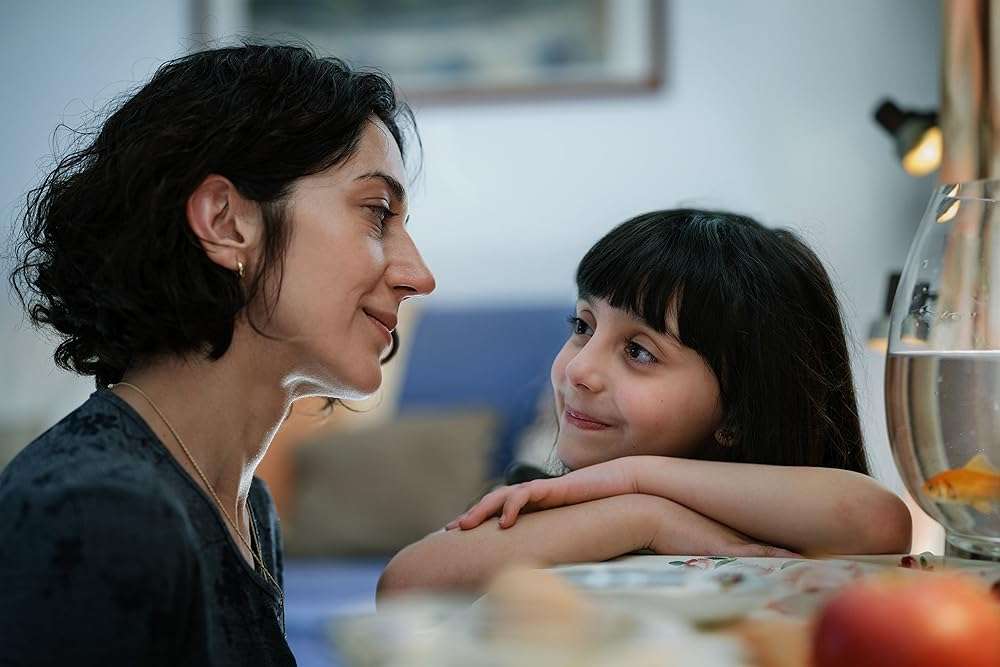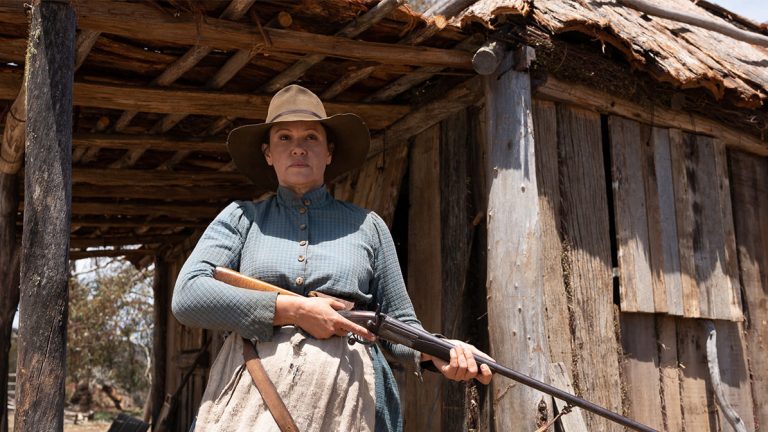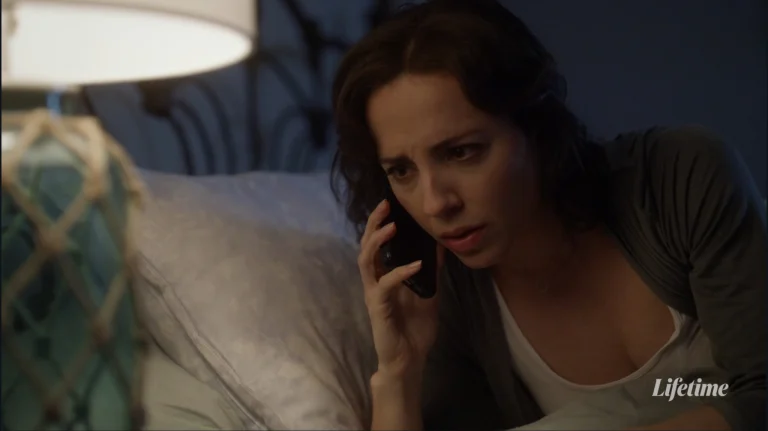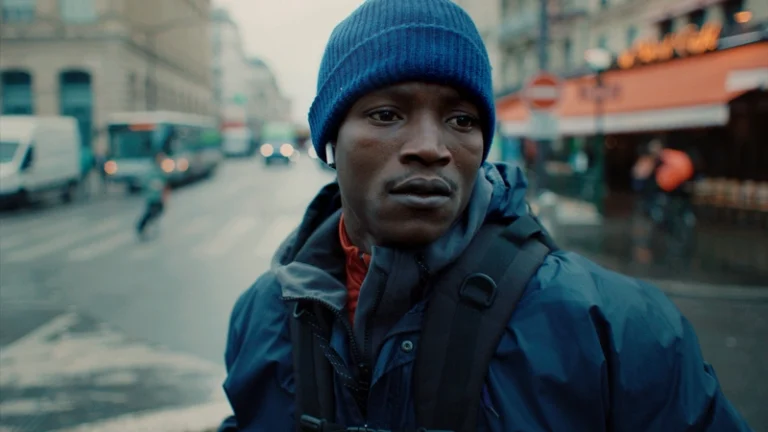How does a woman who has been battered physically and emotionally pick herself up, find new ways of engaging with life, and hope for joy? Noora Niasari’s semi-autobiographical directorial, Shayda, is a reckoning with this road to healing and positive growth. Pain and trauma bubble through the surface of the tale, but Niasari doesn’t indulge in any miserablism, keeping the emotionally tortured state counterpoised with the need for making merry amidst sheer gloom. In the worst of circumstances, we must strive to look toward vitality in whichever form it chooses to appear to us.
The women who occupy the Australian shelter along with Shayda (Zar Amir Ebrahimi) all bear deep scars left by their husbands, who inflicted brutality and used their children to threaten them into compliance. Run by the supportive and kind Joyce (Leah Purcell), the women’s shelter becomes a safe, loving space where the aggrieved women forge bonds of sisterhood and lean on each other in grief.
Set in 1995, we follow the titular protagonist, Shayda, who had come with her husband, Hossein (Osamah Sami), to Brisbane all the way from Tehran, both on student scholarships. Her scholarship for her English degree has been revoked while his medical one has remained intact. Thus, it has made it twice as hard to find something to keep herself engaged. Shayda took refuge in the shelter after what she categorically underlines in her testimony, an episode of rape by her husband.
Shayda’s tremulous, anguished, but firm insistence on recalling and revisiting her traumatic memory makes for one of the film’s most harrowing scenes. Most of the film’s strength draws from Ebrahimi’s emotionally wrenching performance, which conveys how Shayda must have felt around her husband, who is frequently keen on having his way forcefully. But her husband is not just the only thing that keeps Shayda on edge.
Shayda’s visits to the Persian shop are punctuated with abundant fear and extreme stress. Her own immigrant community is a hovering presence, its glare of judgment stern and unforgiving. That she has initiated steps to break off her marriage and fight to get her daughter, Mona’s (Selina Zahednia), custody is blasphemous for her community. Even her own mother mournfully requests her not to do any such thing, asserting that Hossein is at least a good father.
Can she not peacefully settle things, in other words, just mutely put up with the abuse? This is the thinly veiled suggestion from everyone that is directed at her. How can Shayda grow out of her shell of trepidation if she is continually reminded that she is letting go? We can also gauge how much Shayda relied on Hossein in making decisions for her, and this new journey of gaining her selfhood takes on profound layers.

Shayda is initially reserved and guarded, still grasping at the remnants of her former married life. She lives in fear, constantly and acutely watchful of those around her, trying her best to slip out of the notice and severe attention of her diasporic community.
As she slowly opens up to the women at the shelter, her liveliness, which she might have repressed for long in her husband’s shadow, bursts through, rendered all the more striking and joyous in Ebrahimi’s radiant performance. The scene where the women, separated multiculturally, come together and dance to a Farsi song along with Shayda, right after the happy reunion of a mother with her son, exuberantly reminds us to piece together joy from shards of life ripped.
As mother and daughter, Ebrahimi and Zahednia channel a luminous and movingly effective dynamic. In the scenes where Hossein meets Mona for his assigned couple of hours, Niasari makes us first encounter Shayda’s overwhelming apprehension and distress when she waits for her daughter’s return. In close-ups, Ebrahimi registers every flickering shade of Shayda’s roiling terror. Was it unwise of her to trust Mona to Hossein? She is racked by unease. Niasari subsequently also shifts our gaze to young Mona and her set of fears as she sees at close quarters her mother being intimidated and harassed by Hossein. Both Zahednia and Ebrahimi give this mother-daughter track an enormous pull of needing each other to skate past their tremendous, nerve-racking situations.
Shayda has some scenes, despite touching emotional chords, that fall rather pat and contrived, such as one when Shayda consoles a mother at the shelter, agonizing over her missing son, with lines of the Iranian poet Hafez. The randomly picked lines seem divinely picked to speak directly to the mother and reassure her, and immediately thereafter, the missing son shows up. There is also a flimsy, nondescript spark of a love interest that seems interposed ultimately to enable a depiction of Shayda finally moving on. These additions reduce the otherwise quietly and emotionally authentic portrayal of a woman tapping into her resilience.



![The Other Side of the Wind [2018] Review- Everything In Its Right Place](https://79468c92.delivery.rocketcdn.me/wp-content/uploads/2019/01/1469816-4170896-zoomed2-768x432.jpg)




![Luzzu [2021]: ‘HIFF’ Review – Traditionalism Battles Modernization In A Maltese Fishing Town](https://79468c92.delivery.rocketcdn.me/wp-content/uploads/2021/09/Luzzu-1-highonfilms-768x433.jpg)